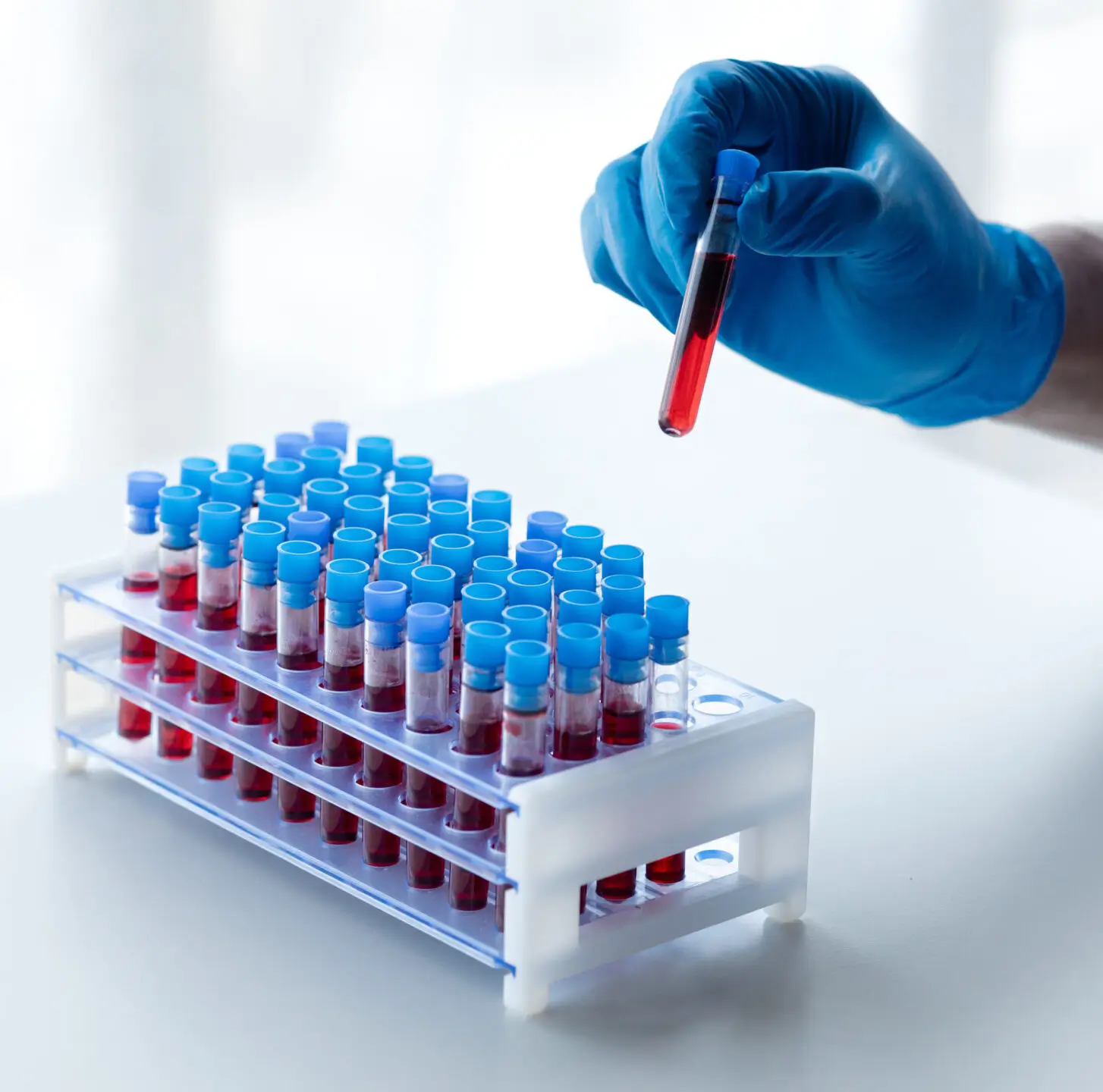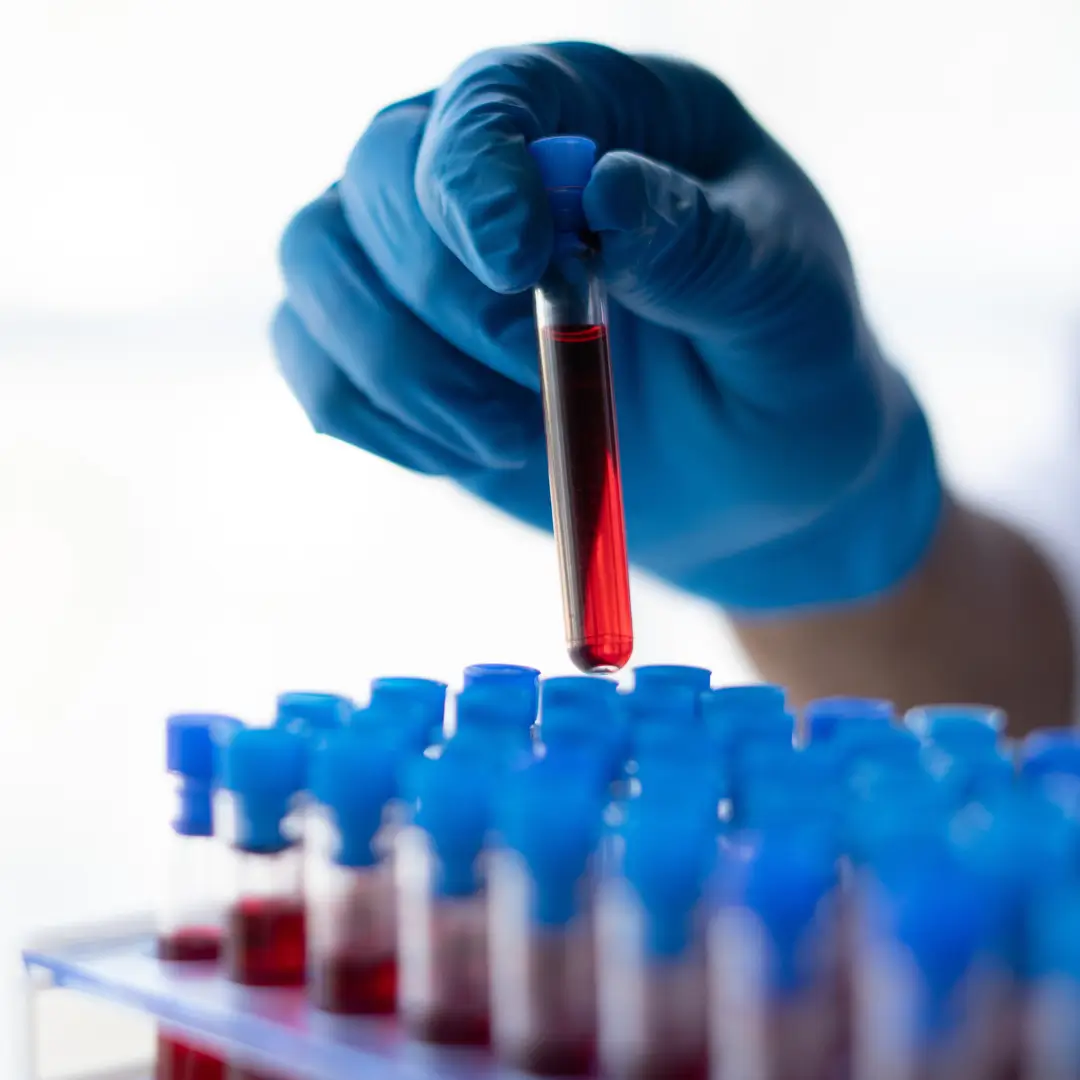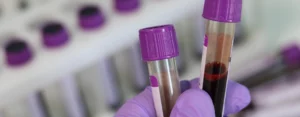Translational Solutions
Harnessing fresh human samples to provide unrivalled translational insights.
- Services
- Translational
Generate Clinically Relevant Data
Synexa’s translational service is dedicated to understanding candidate therapeutics and biomarker data in order to generate clinically relevant data, using fresh human samples from both healthy and diseased populations.
Utilising a broad range of technologies, Synexa assesses candidate drugs in clinically relevant samples from a broad range of therapeutic indications, delivering critical insights including the safety profile, efficacy and mechanism of action, providing the assurance needed to confidently progress into clinical trials.


Unlock Key Therapeutic Insights:
- Early Efficacy & Safety Insights: Assess drug efficacy, safety, and pharmacodynamics before clinical entry
- Indication Prioritisation: Evaluate therapeutic potential across multiple diseases to refine focus
- Competitive Benchmarking: Compare against drug leads against marketed competitors
- Rapid Iteration: Accelerate development with efficient testing cycles

Reduce Your Development Risk:
Real-World Insights: We source disease-relevant patient samples, providing a more accurate reflection of human biology as well as improving future trial efficiency and patient safety
Reduced Development Risk/Costs: Early identification of promising candidates minimises the likelihood of late-stage failures and enhances confidence in moving candidates to clinical trials
Improved Predictive Power: Improved understanding of drug mechanisms and biomarker profiles in human disease contexts for patient stratification
Regulatory Advantages: Our translational solutions complement animal models, aligning with industry trends toward human-centric research
Diverse Sample Matrices: Our clinical network can provide diverse, disease-relevant samples across a range of matrices, including blood, tissues, BALF and CSF
Advanced Technologies: We harness the latest analytical technologies including Olink, Meso Scale Discovery (MSD), dPCR, and flow cytometry
End-to-End Support: Our teams provide end-to-end support, from study design to sample processing and integrated data analysis

How it works:
- Consultation and protocol design
Specialised team with a deep understanding of disease mechanisms and treatment landscape - Experimental design
Flexibility and customisation, each solution is tailored to meet the unique needs of a therapeutic candidate - Ethical approval and sample collection
We collaborate with a large network of clinical sites to obtain ethically sourced, fresh patient samples from diverse populations with full clinical data collection - Data generation and analysis
Integrated with our advanced analytical platforms, we generate robust, actionable datasets that mirror real-life patient responses - Decision making and integration with clinical development
Rapid data processing and interim reports to inform decision making and potential trial adaptations, incorporating biomarker signatures of response

The Scientific Partner of Choice for Biomarker and Bioanalytical Solutions
Bridging the gap between science and life.